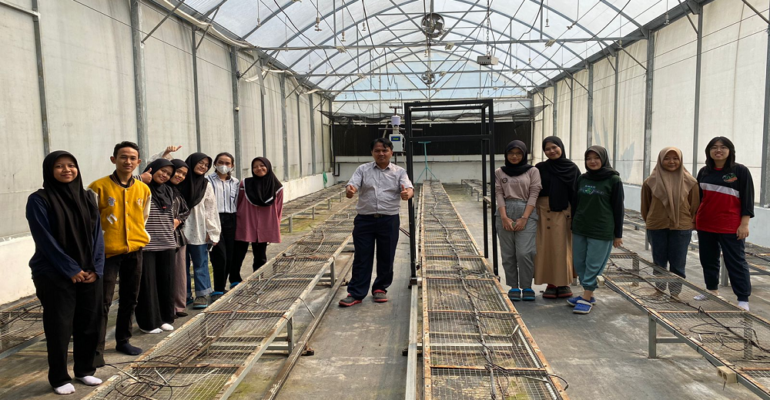The Directorate of Agromaritime Community Development (DPMA) IPB University Together with the Department of Mechanical and Biosystem Engineering (TMB), FATETA Initiate Young Agropreneur Camp Program

DPMA in collaboration with the Department of Mechanical and Biosystem Engineering (TMB), FATETA, IPB University held greenhouse, hydroponic and plant factory training through the Young Agropreneur Camp (YAC) program.
A number of IPB University lecturers were involved as speakers to provide insights to students, participants of the YAC program. They are Dr Supriyanto, Dr Mohamad Solahudin, Dr Slamet Widodo, Lilis Sucahyo MSi, Ahmad and Darma.
Young Agripreneur Camp (YAC) itself is a program designed to prepare the younger generation, especially IPB University students, to work in the field of agriculture widely. The effort is done by increasing the knowledge and skills of cultivation from upstream to downstream.
The YAC program consists of four group fields, namely agriculture, animal husbandry, fisheries and agricultural technology. The collaboration between DPMA and TMB Fateta IPB University is included in the field of agricultural technology located at Siswadhi Soepardjo Field Laboratory, Leuwikopo, IPB Dramaga Campus. The purpose of this activity is the introduction of cultivation technology in the greenhouse and plant factory, the introduction of hydroponics as well as practice.
The material provided included an overview of cultivation, engineering economics, environmental control based on the internet of things (IoT), business models and marketing. Furthermore, the participants also had the opportunity to practice seedling, nutrient mixing and transplanting.
“Future agricultural cultivation technology is divided into three, namely open land, greenhouses with sunlight and plant factories with artificial light (PFAL),” explained Dr Supriyanto, one of the speakers. (*/Rz) (IAAS/MKY)



